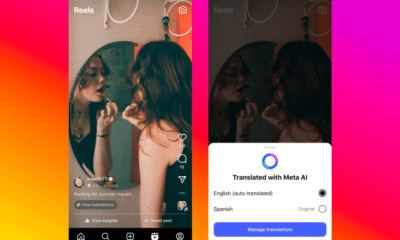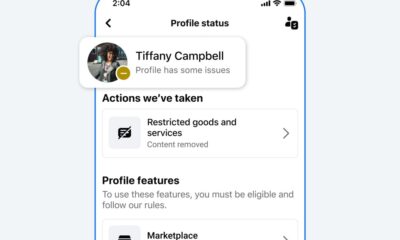AI
The Power of One Sentence: How Researchers are Enhancing AI Creativity with a Simple Addition

Generative AI models, such as large language models (LLMs) and diffusion-based image generators, offer a unique feature of being non-deterministic. This means that they select the most probable next tokens from a distribution to create their outputs, rather than following a fixed pattern. For example, when asked about the capital of France, an LLM may respond with “Paris” in various formats like “The capital of France is Paris” or simply “Paris.”
Despite their versatility, these AI models can sometimes produce repetitive or similar outputs due to a phenomenon known as mode collapse. This post-training alignment issue limits the diversity of responses generated by these models. To address this limitation, a team of researchers from Northeastern University, Stanford University, and West Virginia University have introduced a simple yet effective method called Verbalized Sampling (VS).
Verbalized Sampling works by prompting the model to generate multiple responses with their corresponding probabilities sampled from the full distribution. This approach enhances the diversity of outputs without the need for retraining or adjusting internal parameters. The method has been tested across different tasks like creative writing, dialogue simulation, open-ended QA, and synthetic data generation, demonstrating significant improvements in output diversity and quality.
One of the key advantages of Verbalized Sampling is its tunability, allowing users to adjust the diversity of responses by setting a probability threshold in the prompt. This feature can be utilized without changing any decoding settings, making it a flexible and user-friendly solution. The method has been found to scale well with larger models, with advanced models like GPT-4.1 showing even greater gains in output diversity.
The Verbalized Sampling method is now available as a Python package, providing users with a simple interface for sampling from the verbalized distribution. The package supports integration with LangChain and offers options to adjust parameters like the number of responses and temperature. A live Colab notebook and detailed documentation are accessible under an enterprise-friendly Apache 2.0 license on GitHub.
While Verbalized Sampling works across major LLMs, users may encounter initial challenges, such as refusals or errors from the models. In such cases, following the suggested template or system prompts can help improve reliability. By incorporating this lightweight fix into their workflow, users can enhance the creativity and diversity of outputs generated by AI models without the need for extensive modifications.
Overall, Verbalized Sampling offers a practical solution to address mode collapse in AI models, enabling users to unlock the full potential of these advanced systems. With its potential applications in various domains like writing, design, education, and data generation, VS is poised to become a valuable tool for enhancing model creativity and output diversity.
-

 Facebook4 months ago
Facebook4 months agoEU Takes Action Against Instagram and Facebook for Violating Illegal Content Rules
-

 Facebook4 months ago
Facebook4 months agoWarning: Facebook Creators Face Monetization Loss for Stealing and Reposting Videos
-

 Facebook4 months ago
Facebook4 months agoFacebook Compliance: ICE-tracking Page Removed After US Government Intervention
-

 Facebook4 months ago
Facebook4 months agoInstaDub: Meta’s AI Translation Tool for Instagram Videos
-

 Facebook2 months ago
Facebook2 months agoFacebook’s New Look: A Blend of Instagram’s Style
-

 Facebook2 months ago
Facebook2 months agoFacebook and Instagram to Reduce Personalized Ads for European Users
-

 Facebook2 months ago
Facebook2 months agoReclaim Your Account: Facebook and Instagram Launch New Hub for Account Recovery
-

 Apple4 months ago
Apple4 months agoMeta discontinues Messenger apps for Windows and macOS





























